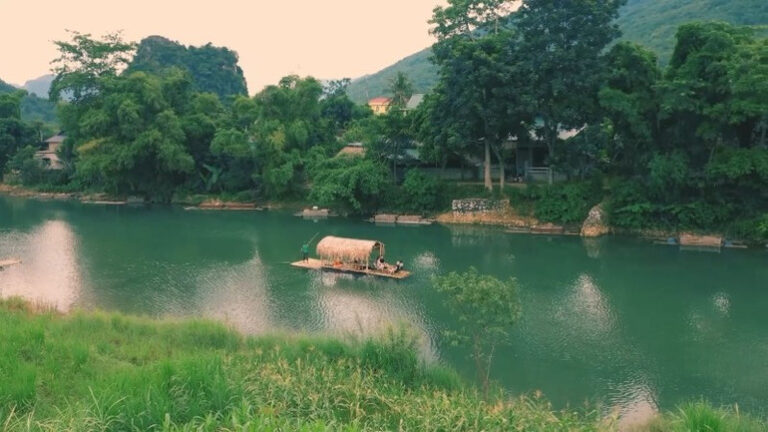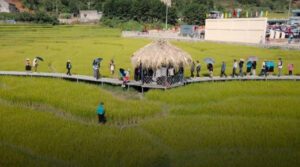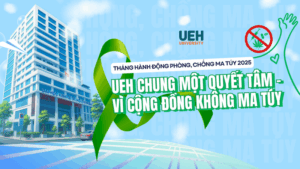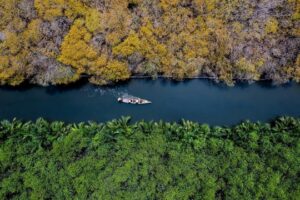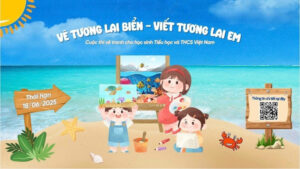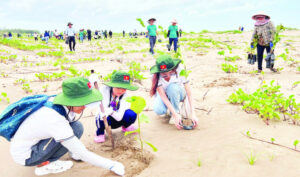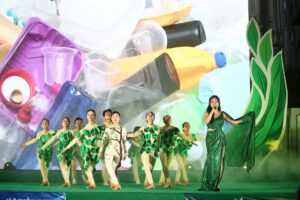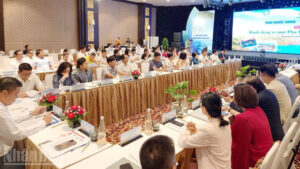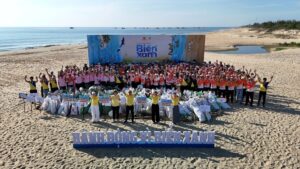The Mekong Delta is a key agricultural region of the country with an ecosystem characterised by interlaced rivers and canals . To promote its potential, many localities have shifted towards developing environmentally friendly agrotourism activities.
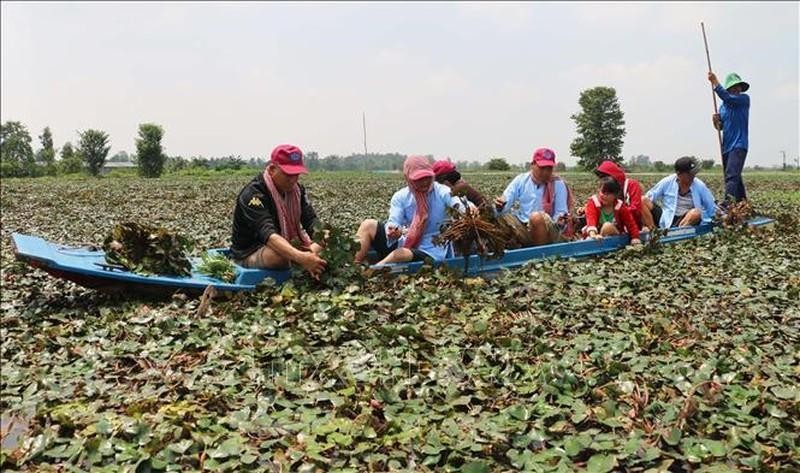
Visitors join agricultural production activities of local people in An Giang province. (Photo: VNA)
Located in the centre of the region, Can Tho city has formed three main models of agricultural tourism, including agrotourism for day tours, agrotourism for guests staying over and resorts associated with agricultural activities.
Tourist attractions are available throughout the districts such as Con Son community-based tourism in Binh Thuy district, Tan Loc ecotourism in Thot Not district, My Khanh tourism garden, Ong De tourism village in Phong Dien district and Tam giac mach (buckwheat) flower garden in Cai Rang district.
Visitors to the city have the chance to experience the daily activities of local people, enjoy traditional specialties and participate in agricultural production such as fishing, planting rice, or playing folk games on the fields and orchards.
Meanwhile, agrotourism in Dong Thap province has developed in some localities in the region. However, thanks to the exploitation and development of typical agricultural products such as lotus (in Thap Muoi district), mandarin fruits (in Lai Vung) and flowers in Sa Dec city and tourist attractions during floating season, the province continues to attract many visitors.
Some other provinces such as Vinh Long, An Giang and Hau Giang have also initially developed agrotourism associated with exploiting their specific local products. According to experts, agrotourism associated with natural conditions is a new and growing trend after the prolonged COVID-19 pandemic period.
Many tourists have turned to environmentally-friendly activities in open spaces, not only in hotels and amusement parks as before. Agrotourism will contribute to creating jobs for farmers and promoting the traditional cultural identities of southern people as well as increasing incomes by 30-40% compared to traditional tourism forms.
In order to support the development of agrotourism, many provinces and cities in the region have issued resolutions, plans and programmes related to investment in and promotion of specific products towards attracting more visitors. However, agrotourism in the region is facing many difficulties and challenges.
Most tourist attractions associated with agriculture have been developed spontaneously by local people and enterprises, not according to the authorities’ plans, leading to uncontrolled development, the duplication of products and competition among localities. The investment resources and human resources for tourism development are weak, and so is limited.
In addition, the infrastructure for agrotourism has not yet met tourists’ demand and localities in the region have not coordinated closely to develop this new tourism form.
As an inevitable trend and strength of the Mekong Rive Delta, agrotourism is a sustainable form as the benefits are shared between both farmers and community. In order to develop this tourism form, localities should enhance their linkages and share information and development plans.
Localities in the region have similar natural conditions, so each province should develop a specific product with great strength to avoid duplication.
Over recent years, agrotourism has mainly relied on exploiting the natural conditions of land, rivers and streams, but lacking methodical investment due to the shortage of capital. Therefore, the localities need to consider the support in funding for agrotourism forms to promote the infrastructure for development while focusing on training knowledge and skills for local people in developing agrotourism and community-based tourism.
Localities in the region should soon have plans and programmes to develop tourism in general and agrotourism in particular on the basis of the integrated planning of the Mekong Delta region that was approved and announced by the Government, towards sustainable development.
Nguyen Thanh - Translated by NDO


